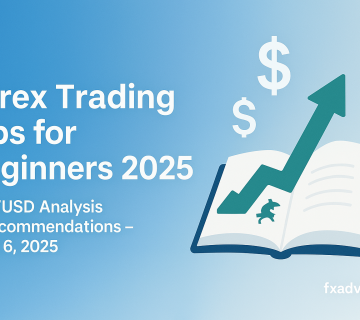Forex Profits Unveiled: Is It Really as Easy as They Say?
Finance advisor platform
Forex Profits Unveiled
Is It Really as Easy as They Say?
- Introduction to Forex Trading
- What is Forex?
- The basics of Forex trading
- Why Forex is appealing to traders
- The Hype Behind Forex Profits
- Marketing myths and common misconceptions
- Success stories: Fact or fiction?
- How Forex Trading Works
- Currency pairs and how they’re traded
- The role of brokers and platforms
- Key terms in Forex (pips, leverage, spreads, etc.)
- The Realities of Forex Trading
- The importance of education and research
- Risks vs. rewards: Why most traders fail
- Is Forex Really That Easy?
- Can anyone learn Forex trading?
- The steep learning curve explained
- Key Strategies for Profitable Forex Trading
- Technical analysis vs. fundamental analysis
- Day trading vs. swing trading: Which is better?
- Common Mistakes New Traders Make
- Over-leveraging and emotional trading
- Ignoring risk management
- The Role of Automation and Forex Robots
- Can bots really make you profit?
- The pros and cons of automated trading
- The Importance of a Trading Plan
- Developing a strategy that fits your style
- The discipline factor
- Is Forex Trading a Get-Rich-Quick Scheme?
- Debunking the myth of instant wealth
- Why patience is key to success
- How to Minimize Risks in Forex
- Using stop losses and take profits
- Position sizing and risk-reward ratios
- Real-Life Forex Success Stories
- Case studies of traders who made it big
- What separates successful traders from the rest
- The Emotional Side of Forex Trading
- Handling stress and managing losses
- The psychology of trading
- Conclusion: Is Forex Trading Worth It?
- FAQs
Forex Profits Unveiled: Is It Really as Easy as They Say?
Introduction to Forex Trading
You’ve probably heard stories about people making a fortune in Forex trading, right? They make it sound like a simple way to turn a small investment into thousands of dollars. But is that really the case? In this article, we’ll break down the hype around Forex trading and get to the heart of whether it’s really as easy as they say.
What is Forex?
The Basics of Forex Trading
Forex, short for foreign exchange, is the global marketplace for buying and selling currencies. It’s one of the largest and most liquid financial markets in the world, where trillions of dollars are traded every day. The idea is simple: buy a currency at a low price and sell it when its value goes up.
Why Forex is Appealing to Traders
The appeal of Forex comes from several factors: 24-hour market access, high liquidity, and the opportunity to trade with leverage, which allows you to control larger positions with smaller capital. But don’t let these factors fool you into thinking it’s a guaranteed way to profit.
The Hype Behind Forex Profits
Marketing Myths and Common Misconceptions
Many Forex courses and advertisements make it seem like you can earn big profits with little effort. Terms like “make money while you sleep” or “turn $100 into $10,000 in a month” are thrown around. In reality, these claims often set traders up for unrealistic expectations, leading to frustration.
Success Stories: Fact or Fiction?
Yes, there are success stories in Forex, but they’re often the result of years of learning, practice, and discipline. The truth is, the vast majority of traders lose money, especially when they start without proper education.
How Forex Trading Works
Currency Pairs and How They’re Traded
Currencies are always traded in pairs (like EUR/USD), meaning you’re betting on the value of one currency rising relative to another. The value of these pairs fluctuates based on a variety of factors, including economic news, market sentiment, and geopolitical events.
The Role of Brokers and Platforms
To trade Forex, you need a broker who provides access to the market via a trading platform. These brokers charge spreads (the difference between the buy and sell price), and in some cases, additional fees. It’s essential to choose a reputable broker.
Key Terms in Forex (Pips, Leverage, Spreads, etc.)
You’ll frequently hear terms like “pips” (the smallest price movement), “leverage” (borrowing funds to increase your trading size), and “spreads.” Understanding these terms is key to managing your trades effectively.
The Realities of Forex Trading
Finance advisor platform
The Importance of Education and Research
Forex trading isn’t something you can pick up overnight. It requires a deep understanding of market trends, economic indicators, and chart analysis. Most successful traders spend months, even years, learning the ropes.
Risks vs. Rewards: Why Most Traders Fail
Statistically, about 70-90% of retail Forex traders lose money. Why? They either lack knowledge, fail to manage risks properly, or get too emotional with their trades.
Is Forex Really That Easy?
Can Anyone Learn Forex Trading?
In theory, yes—anyone can learn Forex trading. But it’s like learning a new language or skill. It requires dedication, practice, and resilience. You must be willing to invest the time to master the concepts.
The Steep Learning Curve Explained
New traders often jump in without realizing the complexities of Forex. From understanding candlestick patterns to mastering risk management, there’s a lot to learn before becoming consistently profitable.
Key Strategies for Profitable Forex Trading
Technical Analysis vs. Fundamental Analysis
There are two main approaches to analyzing the Forex market: technical analysis (using charts and patterns) and fundamental analysis (looking at economic data). Successful traders usually combine both.
Day Trading vs. Swing Trading: Which is Better?
Day trading involves making multiple trades within a single day, while swing trading looks at longer-term trends. Neither is “better,” but one may suit your personality and schedule more than the other.
Common Mistakes New Traders Make
Over-Leveraging and Emotional Trading
New traders often use too much leverage, which increases both potential profits and losses. Emotional trading—letting greed or fear dictate your decisions—is another pitfall.
Ignoring Risk Management
Risk management is essential in Forex trading. This means setting stop-losses, knowing how much of your capital to risk per trade, and sticking to your plan.
The Role of Automation and Forex Robots
Can Bots Really Make You Profit?
Forex robots, or automated trading systems, can execute trades for you based on pre-set criteria. While they can be helpful, they’re not foolproof and often require fine-tuning.
The Pros and Cons of Automated Trading
Bots can take the emotion out of trading, but they lack the ability to adapt to sudden market changes. You should always monitor their performance.
The Importance of a Trading Plan
Developing a Strategy that Fits Your Style
A solid trading plan outlines your goals, risk tolerance, and strategies. It’s your blueprint for success. Don’t trade without one.
The Discipline Factor
Sticking to your trading plan is just as important as having one. Discipline is what separates successful traders from the rest.
Is Forex Trading a Get-Rich-Quick Scheme?
Debunking the Myth of Instant Wealth
While some traders strike it rich, Forex is not a quick path to wealth for most. It requires patience, discipline, and a lot of learning. The journey can be rewarding, but it’s not instantaneous.
Why Patience is Key to Success
You won’t become an expert overnight. Patience, along with a solid strategy and ongoing education, is crucial to long-term success.
How to Minimize Risks in Forex
Using Stop Losses and Take Profits
Stop losses automatically close your trade when it reaches a certain level of loss, while take profits lock in gains. These tools are essential for risk management.
Position Sizing and Risk-Reward Ratios
Never risk more than you can afford to lose. Position sizing and setting appropriate risk-reward ratios will help you stay in the game longer.
Real-Life Forex Success Stories
Case Studies of Traders Who Made It Big
There are a few stories of traders who have turned small accounts into millions, but they are the exception, not the rule. These traders often have years of experience and strong risk management strategies.
What Separates Successful Traders from the Rest
Successful traders tend to be disciplined, patient, and emotionally detached from their trades. They treat trading like a business, not a hobby.
The Emotional Side of Forex Trading
Handling Stress and Managing Losses
Forex can be stressful, especially when trades go against you. Learning to manage emotions is critical to staying focused and avoiding rash decisions.
The Psychology of Trading
Your mindset can make or break your success. Confidence, resilience, and the ability to learn from mistakes are crucial for long-term profitability.
Conclusion: Is Forex Trading Worth It?
In the end, Forex trading can
How to Identify Approved Forex Brokers and Avoid Scams













